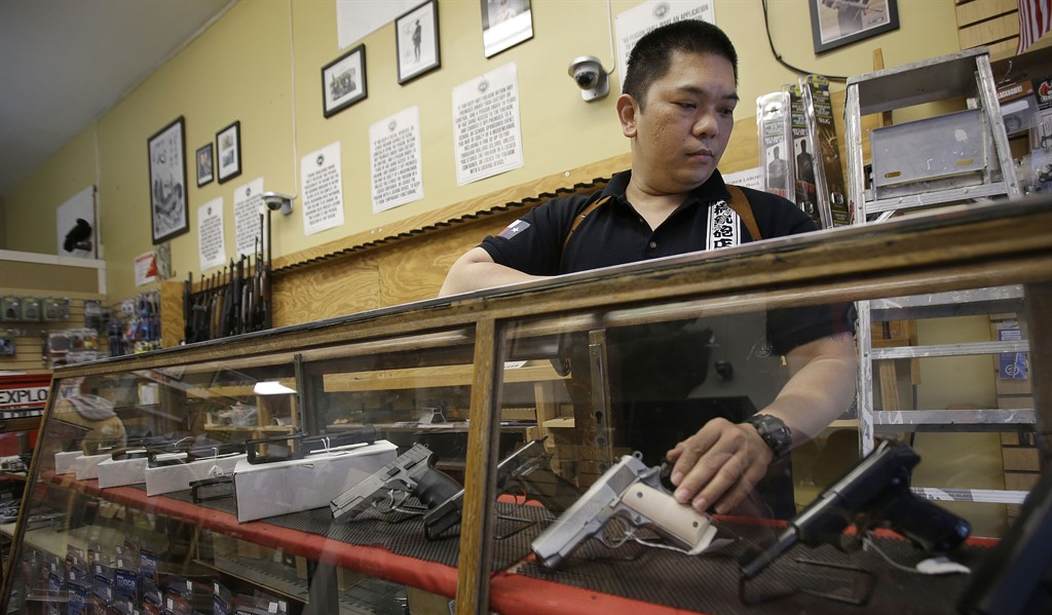All around the nation, we find state and local governments passing varying degrees of gun control. The federal government has tried as well, but those efforts are being held up. Thankfully.
However, the push for more gun control has been powerful in recent years. There’s some concern that we won’t be able to resist it much longer and we’ll see new anti-Second Amendment legislation pass.
Over at Reason, though, they make a good point about all that.
Media outlets love reporting the results of polling on hot-button policy issues, but they rarely tell you if the people supporting proposed legislation (especially when it’s restrictive) are the same people who would be affected by it. That matters in several important ways, not least of which is that getting a law passed is not the same thing as getting people to obey. Nowhere does that matter more than in the heated debate over gun laws.
“Fifty-seven percent of registered voters in the March 24-26 survey said there should be more laws regulating guns in the country,” The Hill reported earlier this year of the results of a Hill-HarrisX poll. That the story might be a little more complicated is hinted at later in the article where the numbers are broken down along partisan lines to reveal that 79 percent of Democrats support tighter gun laws, but only 36 percent of Republicans agree.
Why does the partisan divide on gun policy matter so much? Because gun ownership has traditionally been divided just as starkly along partisan lines, “with Republican and Republican-leaning independents more than twice as likely as Democrats and those who lean Democratic to say they own a gun (44% vs. 20%),” according to 2017 polling by Pew Research. That may indicate an ideological difference, or it may be evidence that familiarity with firearms encourages a more relaxed attitude towards their legal status, or both. Whatever the reason for the deep disagreement, enforcing “tighter gun laws” would require the cooperation of the people who actually possess them and oppose such policy changes.
Even without partisanship, that last sentence still holds true.
Plus, as we know based on the NY SAFE Act, compliance is anything but a foregone conclusion. In that instance, officials expected far greater numbers of registrations to be completed than actually were, leading many to believe tens of thousands of gun owners simply opted to ignore it.
And make no mistake, that’s not a trend that is unique to New York.
See, we use terms like “law-abiding gun owner” because, well, they’re law-abiding. However, you can push anyone far enough that they no longer care about things like legality or illegality. With every gun control law passed, more and more find their line in the sand.
Yet, as Reason‘s J.D. Tuccille notes above, all of those laws require gun owners to buy into it. Without that, the laws are little more than words printed on a page.
While gun owners may suddenly become outlaws, they’re not going to be engaging in all sorts of behavior that would trigger an investigation, meaning law enforcement wouldn’t suddenly become aware of their existence. They’re not going to be selling drugs, buying explosives, or anything of the sort.
They’ll still be pretty law-abiding from all outward appearances. They’ll simply hold onto their guns regardless of what the law says.
A reasonable person can be pushed to some degree. Yet when they’re pushed to an unreasonable degree, the reasonable man will become unreasonable. Where that line is differs from individual to individual, but it exists in each gun owner.
That’s something gun control advocates would do well to remember.








Join the conversation as a VIP Member